How Can I Ease And Prevent Eczema Flare-Ups Post-Covid?
Getting to the bottom of the flare-up mystery.
Historically, understanding how interconnected and responsive our bodies are has been difficult. Whether you’re 15 or 55, it seems we are constantly learning about how hormone changes, stress, illness and exercise all affect our body. Throw in a global pandemic and navigating a whole new infection and it’s no wonder we’re still figuring out just how contracting Covid-19 affects us in the long term.
Coined ‘long Covid’, the symptoms that stick around after you’ve recovered from the seven to 10 days of immediate illness are varied and complicated. Our own founder and editor-in-chief, Eleanor Pendleton, recovered from the infection in January 2022 and has since found that her eczema has flared up considerably–and she’s not alone. Anecdotally, many Gritty Pretty readers have shared their experiences with the same thing.
But is post-Covid eczema a long Covid symptom we should be concerned about? Or is it simply a result of increased hand sanitiser use? We speak with Dr Celestine Wong, from Chroma Dermatology, to find out.
What Causes An Eczema Flare Up?
“There are many triggers for eczema flares,” says Dr Wong. “These include emotional stress, weather changes, dryness and overheating.” In general, Dr Wong advises that respiratory infections (including Covid-19) can sometimes worsen inflammatory diseases including eczema, but admits that the research directly linking the two is inconclusive so far.
“Eczema flares are related more to the body’s immune stress response from fighting a viral infection,” says Dr Wong. “Practically-speaking, it is also likely triggered by frequent hand washing and the increased use of alcohols and astringents to reduce the transmission of Covid-19.”
Eczema And The Pandemic
But the big question remains: is eczema a long Covid symptom we should all be prepared for? In short, no. “Eczema flare-ups are not considered to be ‘long Covid’ or Covid-specific at the moment,” says Dr Wong.
However, more and more patients are presenting with new rashes, such as hives or chilblains, that have occurred while and after they have recovered from the Covid-19 infection. So, just like everything, your body’s immune response is completely individual and could be presenting itself as eczema.
“It is also possible that when you are unwell with Covid-19, it can be tedious to keep up with your regular eczema skin routine and this can lead to a flare,” says Dr Wong. “When you are unwell and live in a shared house, it is also important to wear a mask and keep up with strict hand hygiene. This can trigger a flare of facial rashes and hand eczema if not managed well.”
Treatment Options
The good news? Eczema is relatively common and–with the right over-the-counter and prescribed solutions–can be soothed quite quickly. “As your first port of call, make sure you are using the correct skin products for sensitive skin, which includes a soap-free wash and a fragrance-free moisturiser,” recommends Dr Wong. “It is also best to choose a moisturiser in the form of a cream or ointment as these are better than lotions and can reduce the risk of allergies.”
Our favourite sensitive skin products for the face include the CeraVe Hydrating Cleanser, the Avène Cicalfate+ Restorative Protective Cream, the Biossance Squalane + Probiotic Gel Moisturiser and the Fresh Soy Facial Cleanser.
As for the body, the Aveeno Skin Relief Moisturising Cream, DermaVeen Sensitive Relief Eczema Ointment and E45 Moisturising Cream for Dry Skin and Eczema, will all provide relief.
“Depending on how bad your eczema is, a short course of prescription anti-inflammatory creams and ointments from your family doctor or dermatologist can help to treat the eczema,” recommends Dr Wong. “In severe cases, oral anti-inflammatory medication or antibiotics may be required so I would always encourage you to seek medical help early and treat your eczema early to prevent complications.”
So, while the research is limited at the moment, you know your body the best. If you’re experiencing a flare-up, take care of yourself and be sure to seek help if it becomes unmanageable.
Photography: Kristina Yenko
How Can I Ease And Prevent Eczema Flare-Ups Post-Covid?
Getting to the bottom of the flare-up mystery.
Historically, understanding how interconnected and responsive our bodies are has been difficult. Whether you’re 15 or 55, it seems we are constantly learning about how hormone changes, stress, illness and exercise all affect our body. Throw in a global pandemic and navigating a whole new infection and it’s no wonder we’re still figuring out just how contracting Covid-19 affects us in the long term.
Coined ‘long Covid’, the symptoms that stick around after you’ve recovered from the seven to 10 days of immediate illness are varied and complicated. Our own founder and editor-in-chief, Eleanor Pendleton, recovered from the infection in January 2022 and has since found that her eczema has flared up considerably–and she’s not alone. Anecdotally, many Gritty Pretty readers have shared their experiences with the same thing.
But is post-Covid eczema a long Covid symptom we should be concerned about? Or is it simply a result of increased hand sanitiser use? We speak with Dr Celestine Wong, from Chroma Dermatology, to find out.
Photography: Kristina Yenko
What Causes An Eczema Flare Up?
“There are many triggers for eczema flares,” says Dr Wong. “These include emotional stress, weather changes, dryness and overheating.” In general, Dr Wong advises that respiratory infections (including Covid-19) can sometimes worsen inflammatory diseases including eczema, but admits that the research directly linking the two is inconclusive so far.
“Eczema flares are related more to the body’s immune stress response from fighting a viral infection,” says Dr Wong. “Practically-speaking, it is also likely triggered by frequent hand washing and the increased use of alcohols and astringents to reduce the transmission of Covid-19.”
Eczema And The Pandemic
But the big question remains: is eczema a long Covid symptom we should all be prepared for? In short, no. “Eczema flare-ups are not considered to be ‘long Covid’ or Covid-specific at the moment,” says Dr Wong.
However, more and more patients are presenting with new rashes, such as hives or chilblains, that have occurred while and after they have recovered from the Covid-19 infection. So, just like everything, your body’s immune response is completely individual and could be presenting itself as eczema.
“It is also possible that when you are unwell with Covid-19, it can be tedious to keep up with your regular eczema skin routine and this can lead to a flare,” says Dr Wong. “When you are unwell and live in a shared house, it is also important to wear a mask and keep up with strict hand hygiene. This can trigger a flare of facial rashes and hand eczema if not managed well.”
Treatment Options
The good news? Eczema is relatively common and–with the right over-the-counter and prescribed solutions–can be soothed quite quickly. “As your first port of call, make sure you are using the correct skin products for sensitive skin, which includes a soap-free wash and a fragrance-free moisturiser,” recommends Dr Wong. “It is also best to choose a moisturiser in the form of a cream or ointment as these are better than lotions and can reduce the risk of allergies.”
Our favourite sensitive skin products for the face include the CeraVe Hydrating Cleanser, the Avène Cicalfate+ Restorative Protective Cream, the Biossance Squalane + Probiotic Gel Moisturiser and the Fresh Soy Facial Cleanser.
As for the body, the Aveeno Skin Relief Moisturising Cream, DermaVeen Sensitive Relief Eczema Ointment and E45 Moisturising Cream for Dry Skin and Eczema, will all provide relief.
“Depending on how bad your eczema is, a short course of prescription anti-inflammatory creams and ointments from your family doctor or dermatologist can help to treat the eczema,” recommends Dr Wong. “In severe cases, oral anti-inflammatory medication or antibiotics may be required so I would always encourage you to seek medical help early and treat your eczema early to prevent complications.”
So, while the research is limited at the moment, you know your body the best. If you’re experiencing a flare-up, take care of yourself and be sure to seek help if it becomes unmanageable.





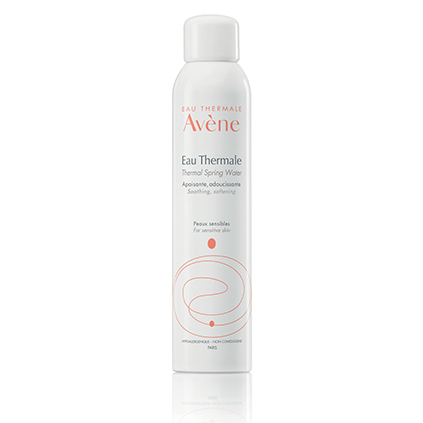
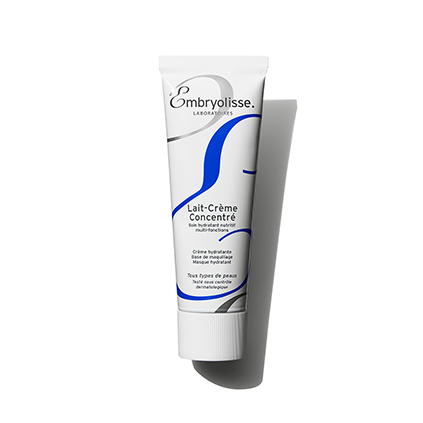
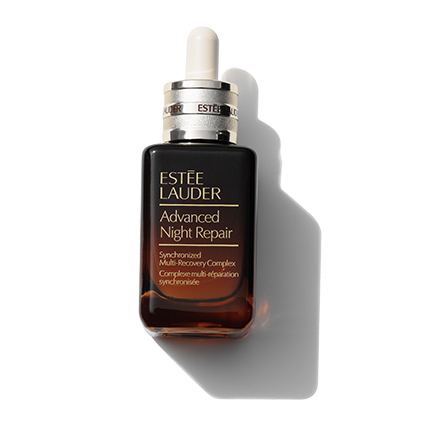
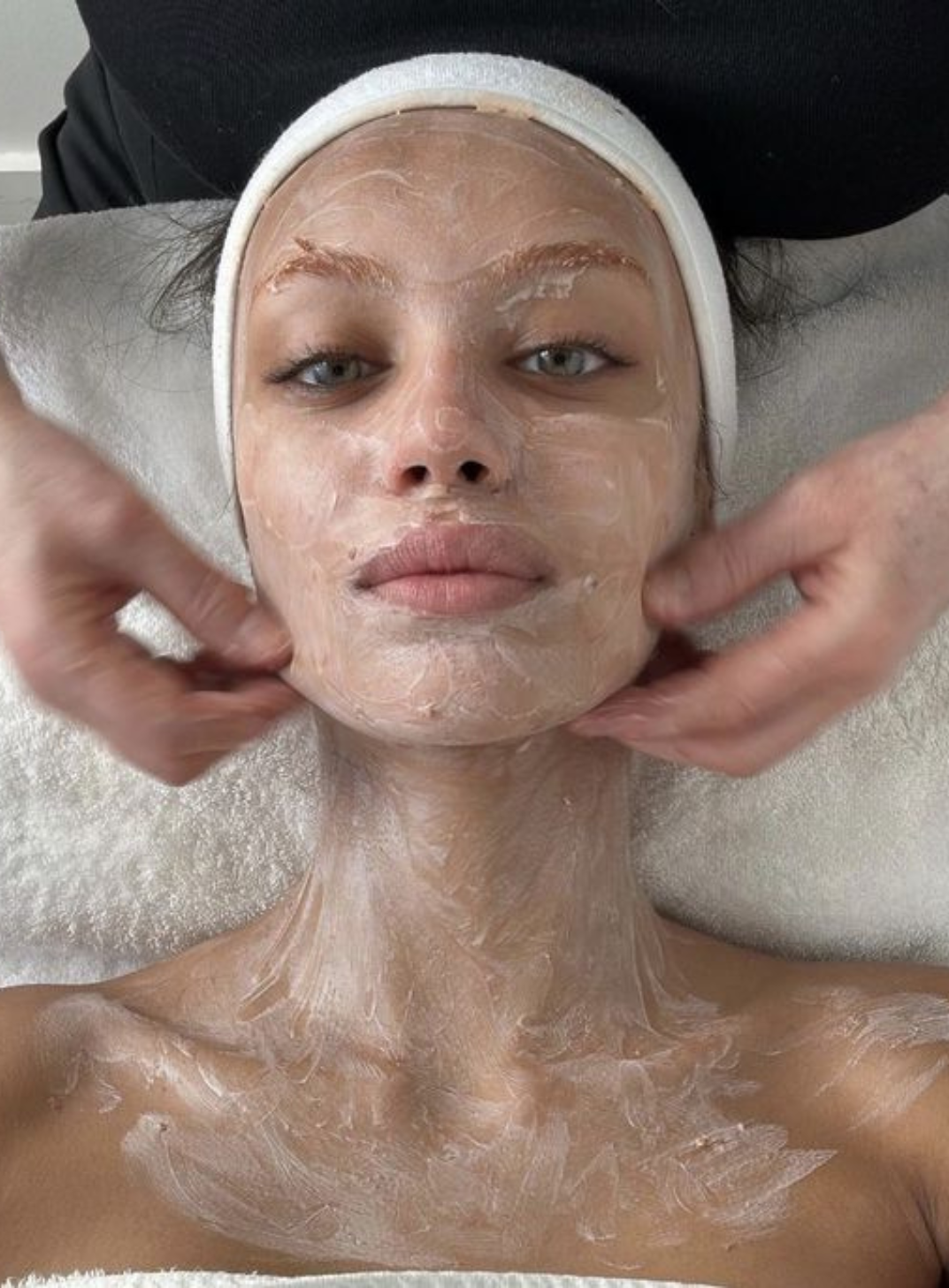


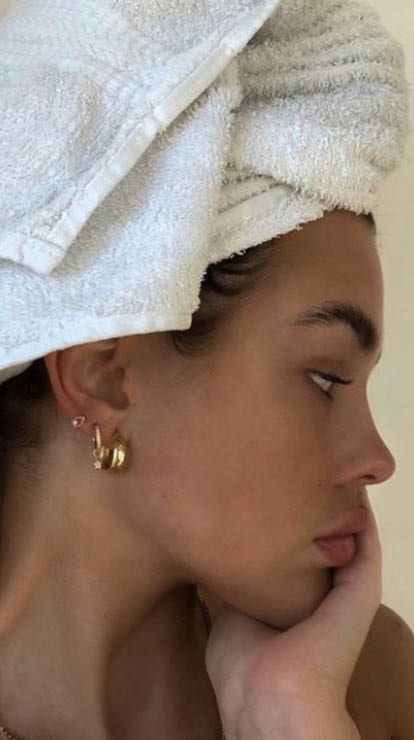


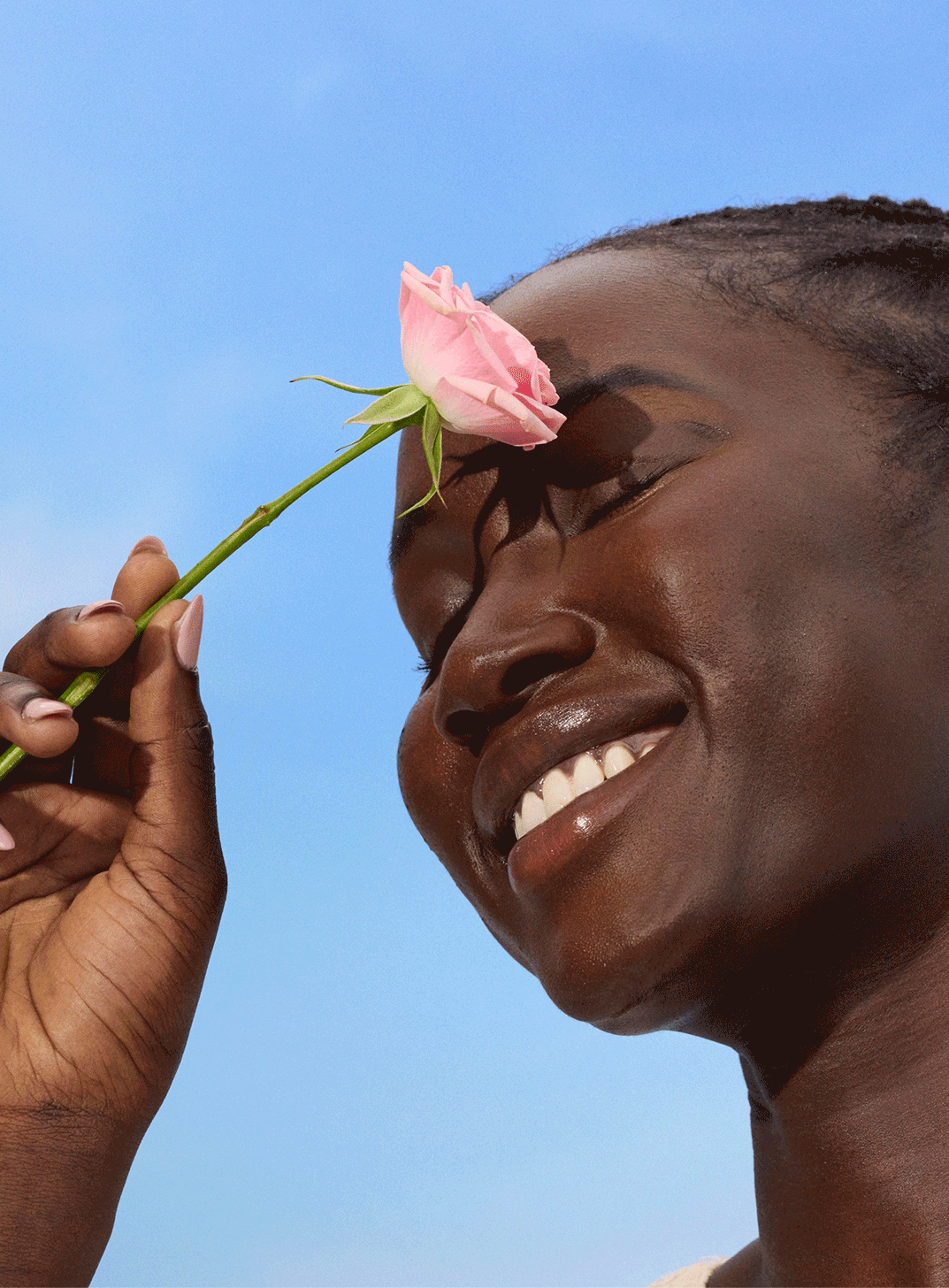

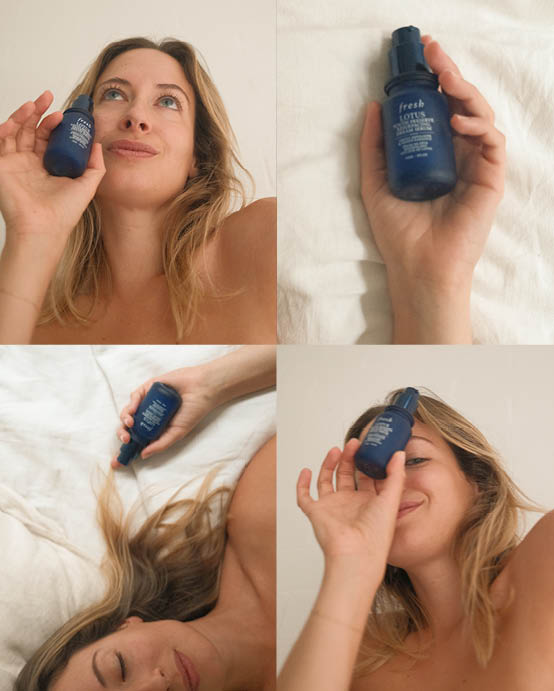
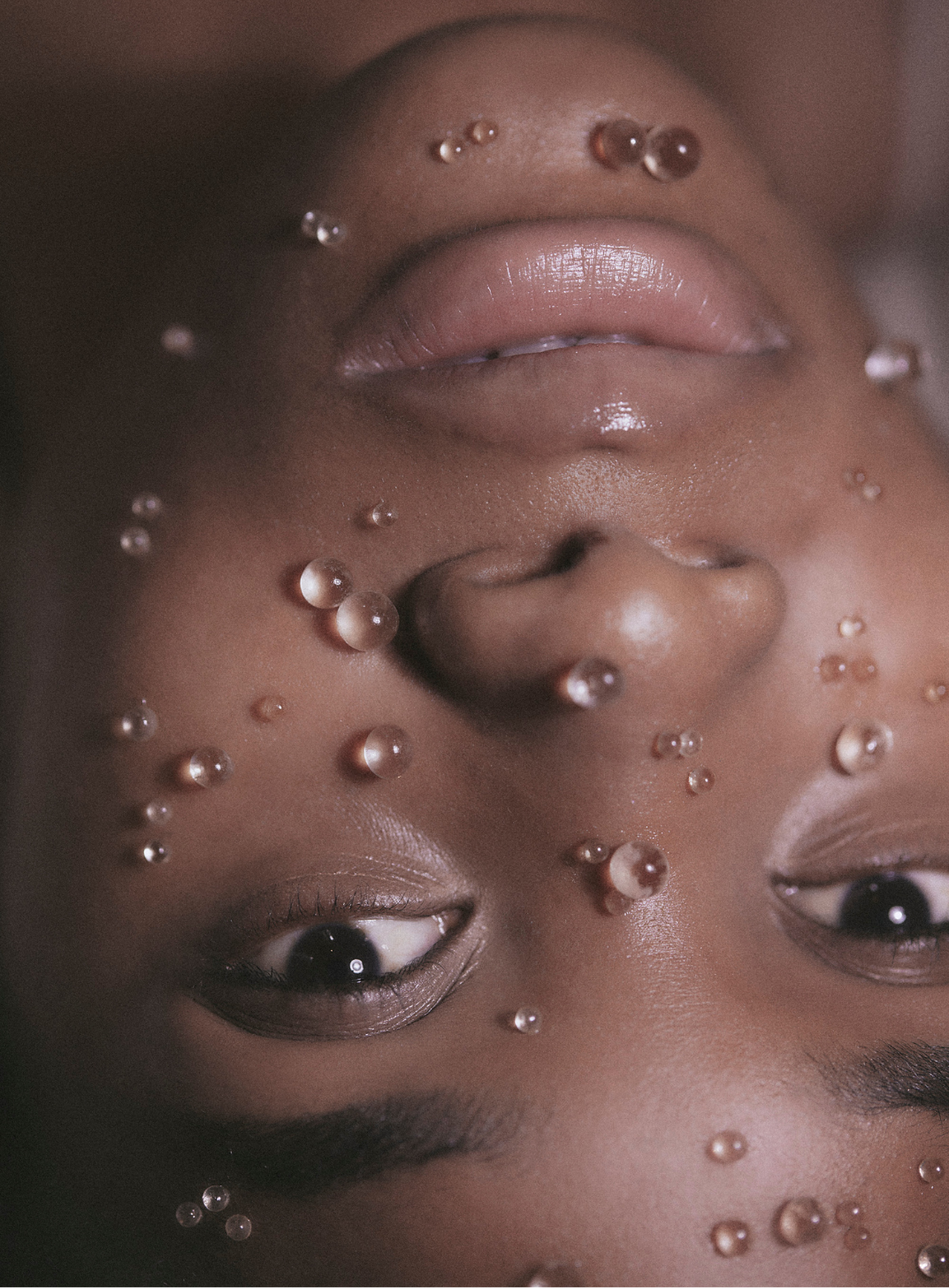
Comments